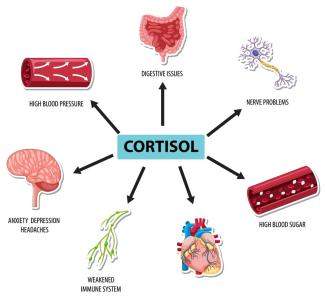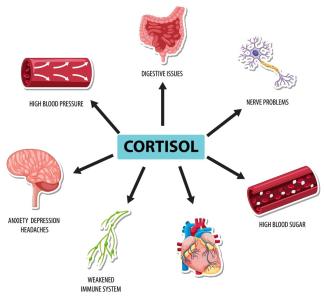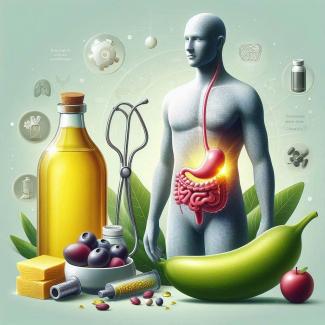
Low cortisol, a condition known as hypocortisolism or adrenal insufficiency, can lead to a range of symptoms and problems. Cortisol is a steroid hormone produced by the adrenal glands that plays a crucial role in various bodily functions. When cortisol levels are insufficient, it can result in the following issues:
- Fatigue and Weakness: Cortisol helps regulate the body's energy levels, and low cortisol can lead to extreme fatigue and weakness. This is often one of the most noticeable and debilitating symptoms.
- Low Blood Pressure: Cortisol plays a role in maintaining blood pressure. Low cortisol levels can cause orthostatic hypotension, a condition where blood pressure drops significantly when you stand up, leading to dizziness and even fainting.
- Poor Concentration and Cognitive Problems: Cortisol affects cognitive function and memory. Low cortisol levels can lead to difficulty concentrating, memory problems, and mental fog.
- Weight Loss and Decreased Appetite: Some individuals with low cortisol may experience weight loss and reduced appetite due to changes in metabolism and the body's ability to maintain blood sugar levels.
- Gastrointestinal Symptoms: Adrenal insufficiency can cause gastrointestinal issues such as nausea, vomiting, and abdominal pain. It can also lead to diarrhea and other digestive problems.
- Hypoglycemia: Cortisol helps regulate blood sugar levels. Low cortisol can lead to hypoglycemia, where blood sugar drops to dangerously low levels, resulting in symptoms like shakiness, sweating, and confusion.
- Muscle and Joint Pain: Low cortisol levels can contribute to muscle weakness and joint pain. This can make physical activity difficult and painful.
- Salt Cravings: Adrenal insufficiency may lead to salt cravings as the body tries to compensate for low cortisol levels. Sodium helps maintain blood pressure, and the body may crave salt to increase blood pressure.
- Mood Changes: Low cortisol levels can lead to mood swings, anxiety, and even depression. It can affect the brain's ability to regulate emotions and stress.
- Skin Changes: Some people with low cortisol may experience changes in skin pigmentation, resulting in darkening of the skin, particularly in areas of increased friction and pressure.
- Hair Loss: Hair thinning and hair loss can occur as a result of adrenal insufficiency.
- Increased Sensitivity to Stress: Individuals with low cortisol may become more sensitive to physical and emotional stress. They may find it challenging to respond to stressors effectively.
It's important to note that there are two main types of adrenal insufficiency: primary and secondary. Primary adrenal insufficiency, also known as Addison's disease, is caused by dysfunction of the adrenal glands themselves. Secondary adrenal insufficiency is often related to a malfunction in the pituitary gland or hypothalamus, affecting the production of hormones that stimulate cortisol release.
If you suspect you have low cortisol or are experiencing these symptoms, it's crucial to seek medical evaluation and treatment. Cortisol replacement therapy, often with medications like hydrocortisone, is typically prescribed to manage this condition and relieve its associated symptoms. Management and treatment should be overseen by a healthcare professional, as improper management can have serious health consequences.






